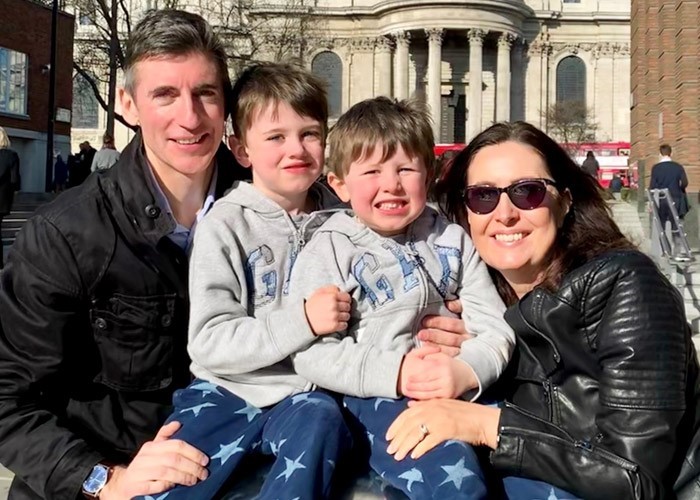Therese was working as an emergency nurse when she was diagnosed with secondary breast cancer. She shares how her diagnosis has motivated her at work.
Therese was working as an emergency nurse when she was diagnosed with secondary breast cancer. She shares how her diagnosis has motivated her at work.

I thought I was too young to have breast cancer
In 2009, I discovered a lump on my breast. My heart stopped.
I was 29 and had always assumed that breast cancer was an older person’s disease. I tried to get on with life, but as an emergency nurse, I couldn’t help asking colleagues and using my medical knowledge to assess what the lump could be.
Eventually, I accepted it wasn’t going away and got a referral to the breast clinic. I remember waiting for my appointment and knowing that someone in that room would be diagnosed with breast cancer. I hoped that it wouldn’t be me.
A week passed, and a colleague who I had told about my lump asked if I had got my results yet. It hadn’t even crossed my mind to follow up. When I did, I was told that I had breast cancer.
I wanted to have control over the situation
One perk of working in the NHS is that I was able to get a follow-up appointment quickly. This helped me feel like I still had some control over the situation.
My primary diagnosis was an overwhelming challenge for everyone, but I had great support. I’m a very proactive and positive person and was lucky to have staff who helped me through my treatment.
I was told that I wouldn’t have children because of my breast cancer treatment. However, a few years on from my treatment I gave birth to have two beautiful boys, Ethan and Calum.
I wasn’t expecting secondary breast cancer
It was after Calum was born in 2014 that I started to experience pain around my back, shoulder, neck and hips. I put it down to post-pregnancy aches. Nurses are notoriously bad at looking after their own health problems. After all, we’re used to helping other people first.
I decided to get my pains checked and asked for an MRI scan. I expected it to all be fine and eagerly awaited a call from my colleagues letting me know I was OK.
Instead, I had a knock on my door. Three of my colleagues had come over to tell me the news that they had found cancer in my bones and liver.
I had never thought that I would have secondary breast cancer. I didn’t know what to expect. Would I survive? Who would care for my children?

Cancer governed my life again
I was told by my breast surgeon that I would start chemotherapy treatment in the next two weeks. Once again, I was going to be governed by appointments and hospital visits. I felt like I lost the life I had rebuilt after my primary diagnosis.
I think it’s really important for patients to think about the options they have. Through making decisions and allowing myself to be cared for by my family and friends I was able to feel in control of what was happening to me.
My husband Chris and our families have been amazing. Telling them was very difficult as it meant that I couldn’t pretend it wasn’t happening to be. I’m not sure how we would have got through the last four years without their support.
I’ve had to accept the uncertainty
There’s an uncertainty in my life that there wasn’t before. We don’t know how long I have left.
I had a conversation with another emergency nurse about how life is precious and the unexpected can happen. It's something we come face to face with every day on the emergency department.
Because of my secondary diagnosis, I’ve had to accept the unexpected in order to move forward. As long as I’ve got a choice about how I can live my life, I will keep living it.
I want to encourage other nurses
I’ve continued to keep working as an emergency nurse educator and feel passionate about making a difference. I want to encourage future nurses and enable them to make a difference for the patient.
My experience as a patient means that I’ve got an insight into both sides. There’s an analogy I like to use when teaching – the starfish and the child.
A man sees a child picking up starfish stranded on a beach and throwing them back into the sea. The child says he's saving them from the sun. The man says, 'But there are thousands of them, you won't make much of a difference.' The child says, 'It's already made a difference to that one.’
If you treat every individual person with attention and kindness, you’ll be able to help them through the most challenging time of their lives. It’ll make a difference.
Find support and information on living with secondary breast cancer.